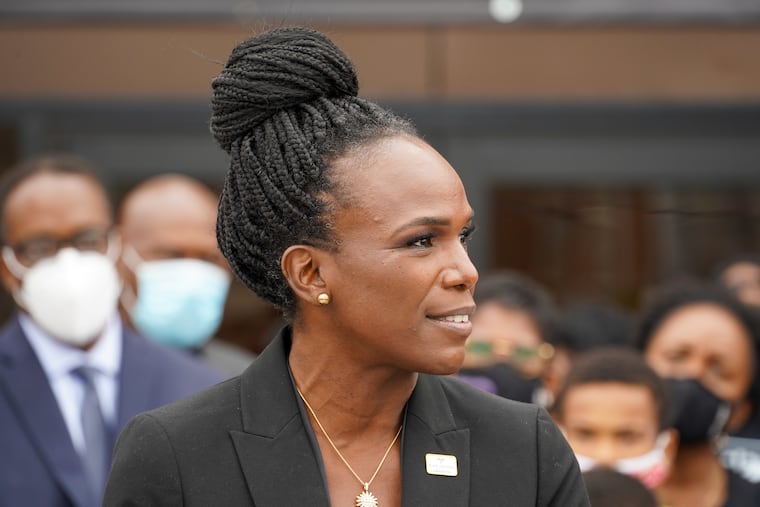As an HHS regional director, Ala Stanford hopes to bring lessons learned in Philly across state lines
As U.S. Health and Human Services regional director for Delaware, the District of Columbia, Maryland, Pennsylvania, Virginia, and West Virginia, Stanford will connect leaders with resources.

There’s not exactly an online job board for becoming a presidential appointee.
Ala Stanford, the founder of the Black Doctors COVID-19 Consortium, said in her case someone (she wouldn’t say who) asked in January if she’d be interested in becoming the U.S. Health and Human Services regional director for Delaware, the District of Columbia, Maryland, Pennsylvania, Virginia, and West Virginia (also known as Region 3). She was.
“My vision has always been and goals have always been about health equity and equality and that everyone is getting the care they deserve,” said Stanford, a pediatric and adult general surgeon. After a six-week interview process, she got a job offer.
The official description for the job Stanford started at the end of April is broad. According to HHS, the country’s 10 regional directors and their offices work with state and local organizations to address the “needs of communities and individuals served through HHS programs and policies.”
But what does that collaboration look like?
Say one community-based organization receiving federal funding to address maternal morbidity and mortality and infant mortality is getting exceptional results. Stanford said her role would allow her to amplify its model across states. Similarly, Stanford could intervene if an organization is seeing poor results by either advocating for President Joe Biden’s administration to offer more resources or suggesting the organization change its course.
A lot of the job, said Stanford, is understanding that what might work in Maryland might not help West Virginia and realizing that different approaches may be needed by the federal government to help states reach the best health outcomes.
“I’m an educator, I’m an advocate, I am a steward of the public’s resources,” explained Stanford, adding she thinks she can use her expertise to make an even bigger impact than she could as a physician in Philly in the fight for equity in health care.
By now, Stanford has no shortage of accolades, including 2021 CNN Hero and 2021 George H.W. Bush Points of Light Award recipient.
Her work gained prominence when she saw Black and other people of color falling through the cracks in the early days of the pandemic and did something about it.
She founded the Black Doctors COVID-19 Consortium in April 2020 and the group of volunteers increased testing resources in underserved communities, eventually helping vaccinate those same neighborhoods.
That work has made Stanford a recognized figure in Philadelphia, with multiple people stopping her in Center City on a Tuesday afternoon to compliment her work. (Stanford used the opportunity to ask if people had received their coronavirus booster shots.)
Stanford’s latest push to bring equity in health care included the opening of a primary care clinic, which includes access to behavioral health and social services, in North Philly last fall.
Stanford, who withdrew her name from the pool of applicants looking to become Philadelphia’s health commissioner so she could continue her work at the clinic, said stepping down as CEO for the HHS job was easier with the center on good financial footing.
She said the center remains in capable hands and her knowledge of managing a community-based organization on limited funds will inform her work at HHS, especially at a time when the Biden administration’s funding priorities might not be met.
For now, Stanford remains optimistic with a long list of priorities, including the expansion of substance abuse treatment, mental health support, maternal health, infant mortality, and COVID response and preparedness. Though she will be based in Philly, she’ll be traveling the region to share her vision.
“[People] want to have joy, they want to be with their families, they don’t want to be in pain,” said Stanford. “They don’t want to be treated inhumanely.”